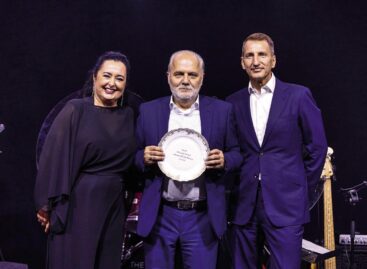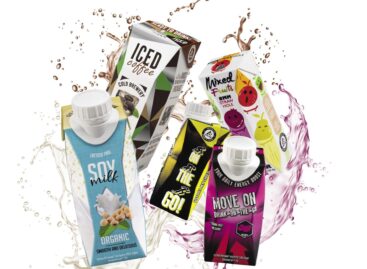The material is recycled plastic from end-user households. “It is an important step for us that we have been able to increase the proportion of recycled PE in our toilet cleaners so significantly. After all, the availability of high-quality recycled materials of this plastic is still limited,” explains Ulf Timmann, Head of Global Packaging Innovation Toilet Care & Hard Surface Cleaning. “The success is at the same time a motivation. Our goal is to even further increase the proportion of recycled material in our packaging.”
New packaging for toilet cleaners: less plastic and more recycled material
With a new, global packaging concept for toilet cleaner bottles Henkel is underlining its commitment to sustainable packaging and the promotion of a circular economy. The amount of recycled polyethylene (PE) in the packaging of toilet cleaner gels* has been significantly increased – reaching 50 percent for toilet cleaners in the standard range, for example from the Biff brand, and, in the case of cleaners from the Pro Nature range, as much as 75 percent.
Not only does the new packaging concept include more recycled plastic, but also less plastic overall. This reduces the weight of the bottle by 11 percent. This packaging innovation saves 480,000 kilograms of new plastic per year. This corresponds to a saving of 800 tons of CO2 annually. The compact bottle design allows around 10 percent more bottles to fit on a transport pallet. In addition to the increased use of recycled materials, this has a positive effect on the ecological footprint, as it saves CO2 during transport.
With the new packaging concept, Henkel has introduced a standardized bottle body design for toilet cleaners worldwide. All bottles are now available in a uniform format and have polyethylene as a material. The products have been available in stores since January 2021.
Ambitious targets for sustainable packaging and climate protection
The new toilet cleaner bottle thus contributes to Henkel achieving its ambitious packaging targets. The company is working towards the ambitious target to reduce the amount of virgin plastic from fossil sources in its consumer product packaging by 50 percent by 2025. To reach this goal, Henkel aims to increase the proportion of recycled plastics to more than 30 percent by 2025, reduce the absolute plastic volume and increase the use of biobased plastics. In addition, 100 percent of Henkel’s packaging will be recyclable or reusable**. Sustainable packaging solutions also contribute to Henkel’s climate protection targets. By 2040, Henkel aims to be a climate-positive company.
To learn more about Henkel’s sustainability strategy, targets and activities, visit https://www.henkel.com/sustainability/sustainable-packaging
* Except for those products that are subject to special safety standards due to their high cleaning performance.
** Excluding products where residue may affect recyclability or pollute recycling systems
Related news
We were learning together (Part 2)
Almost 1,100 “students” enrolled at the FMCG Open University, to…
Read more >Sustainable packaging: focus on recycling and the circular economy
Packaging is a key element of the supply chain, where…
Read more >Take wherever you wish: sustainable packaging for active consumers
On-the-go foods made for active consumers are conquering shops, as…
Read more >Related news
Müller Drogéria Hungary has recalled MadeGood Bio Granola muesli bars in various flavors
Due to the presence of metal filings, Müller Drogéria Magyarország…
Read more >The world is celebrating the resurgence of retro gaming, and it’s time to get to know it a little better
The huge success of the TV series Stranger Things, which…
Read more >GUVET high fashion clothing brand breaks into the global market with Hungarian goose feathers
On December 3rd, FBZ Hungária, the largest Hungarian down distributor,…
Read more >







